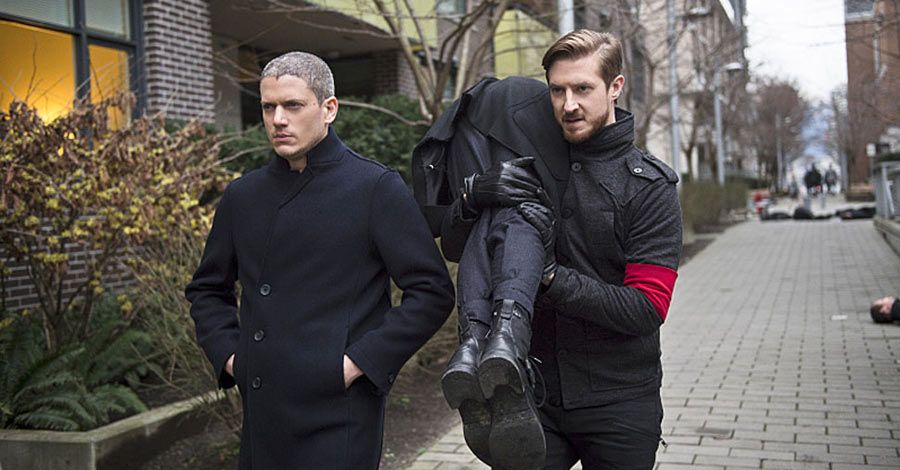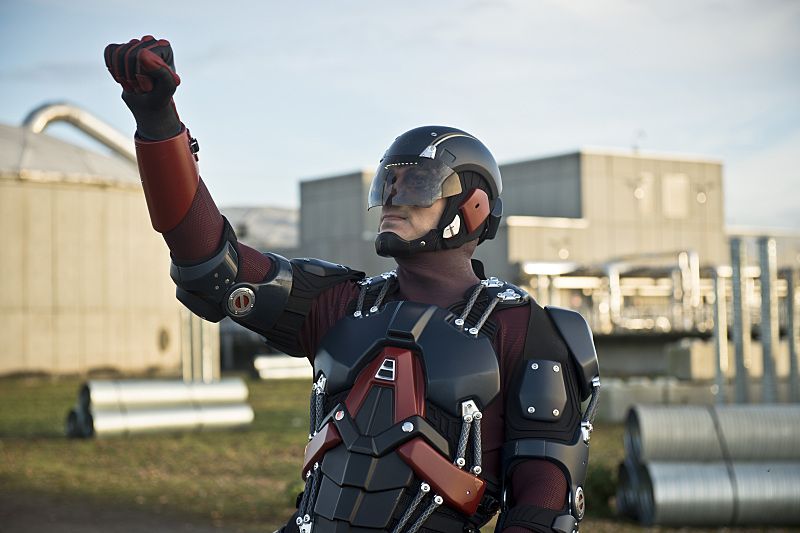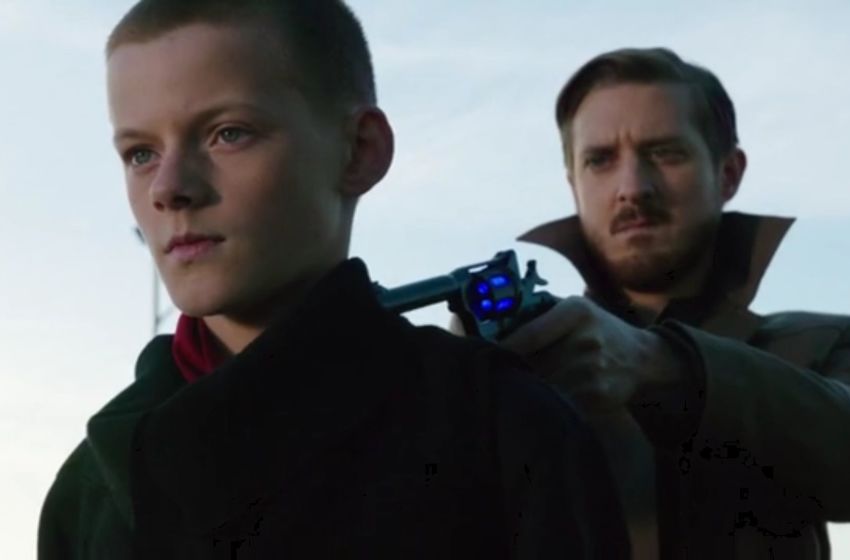"DC's Legends of Tomorrow" seems like it wants to have a long game, to develop an overall story that has drastic consequences from week to week. But because the heroes jump between time periods where the events can eventually be altered, the stakes sometimes feel low when they shouldn't. That doesn't make the episodes bad -- just inconsequential from time to time.
On "Progeny," this sense of triviality doubles because of the ending to both the A and B storyline. After arriving in 2147, Atom discovers the era's militant robotic police were developed from the same technology found in his suit. Upon further investigation, he realizes that the robots may have been created by his great, great, great, great granddaughter -- the result of his girlfriend getting pregnant (unknown to him) before he left 2016.
For much of "Progeny," this creates a juicy internal crisis for Ray, who's arguably the most moral person on the team. Having to shoulder the fact that he may have been responsible for a global brigade of automated fascism is much harder for him to deal with than it would be for someone like Captain Cold, Heat Wave, or even White Canary. His moral dilemma ends up being just as exciting as any of the episode's action sequences.
But that gets undercut by the conclusion, which reveals that Dr. Rachel Turner (Jewel Staite) isn't his offspring, but that of his boneheaded brother, Sidney. The whole thing was just a big misunderstanding. Once again, a potential bomb on "Legends" has proven to be nothing more than a toy, a plot device that has no effect on the main arc and will be forgotten about next week. At least it was intriguing for a little bit.
The central thread ends in similarly anticlimactic fashion, with Rip unable to kill a teenager named Per Degaton, who's set to rise to power under Vandal Savage's tutelage, then all but wipe out the human race with a virus. As the show points out, it's the DC equivalent to the "Baby Hitler" scenario: If you could go back in time, would you kill the führer to prevent the Holocaust?
The logical answer is yes, but that doesn't make it any easier for Rip. As much as he knows he should, he can't bring himself to murder a child, especially when his quest is so driven by a love for his own boy. He lets Per go, but in a cruel twist of fate, Savage -- now very aware of the Legends' presence in 2147 -- expedites the manipulation of his student, leading the kid to murder his father, give Savage even more power, and release the virus years ahead of schedule.
On paper, it reads that Rip's decision of non-violence has huge consequences. And I suppose it does. But they're consequences in a world that we rarely get to see on the series. As cruel as it sounds, any horrible events that occur in 2147 don't have a ton of impact on the viewer, simply because the show usually doesn't take place in 2147. Also, the Legends have proven time and time again that they have the ability to change the course of a timeline with their next mission. It's somewhat fascinating to see Rip grapple with the choice of whether or not to murder a child, but the ultimate outcome has a low, shrug-worthy impact.
As per usual on "Legends," the arc that feels most dramatic in "Progeny" involves a conflict between two of the main cast members. Unlike Rip's decision not to kill Per, Heat Wave's decision not to kill Captain Cold has an immediate effect on the narrative, if only because their relationship has been a constant on the series. We know they have to navigate it from week to week, and because Heat displays some vulnerability; because his mercy doesn't completely alleviate the tension between them, we have no idea where their story's going to go next. But we do know that it will be a part of the show's immediate future, which means we care about it in the immediate present.
NOTE: "DC's Legends of Tomorrow" didn't air in Chicago until Sunday night due to a a baseball game on the local CW affiliate.



